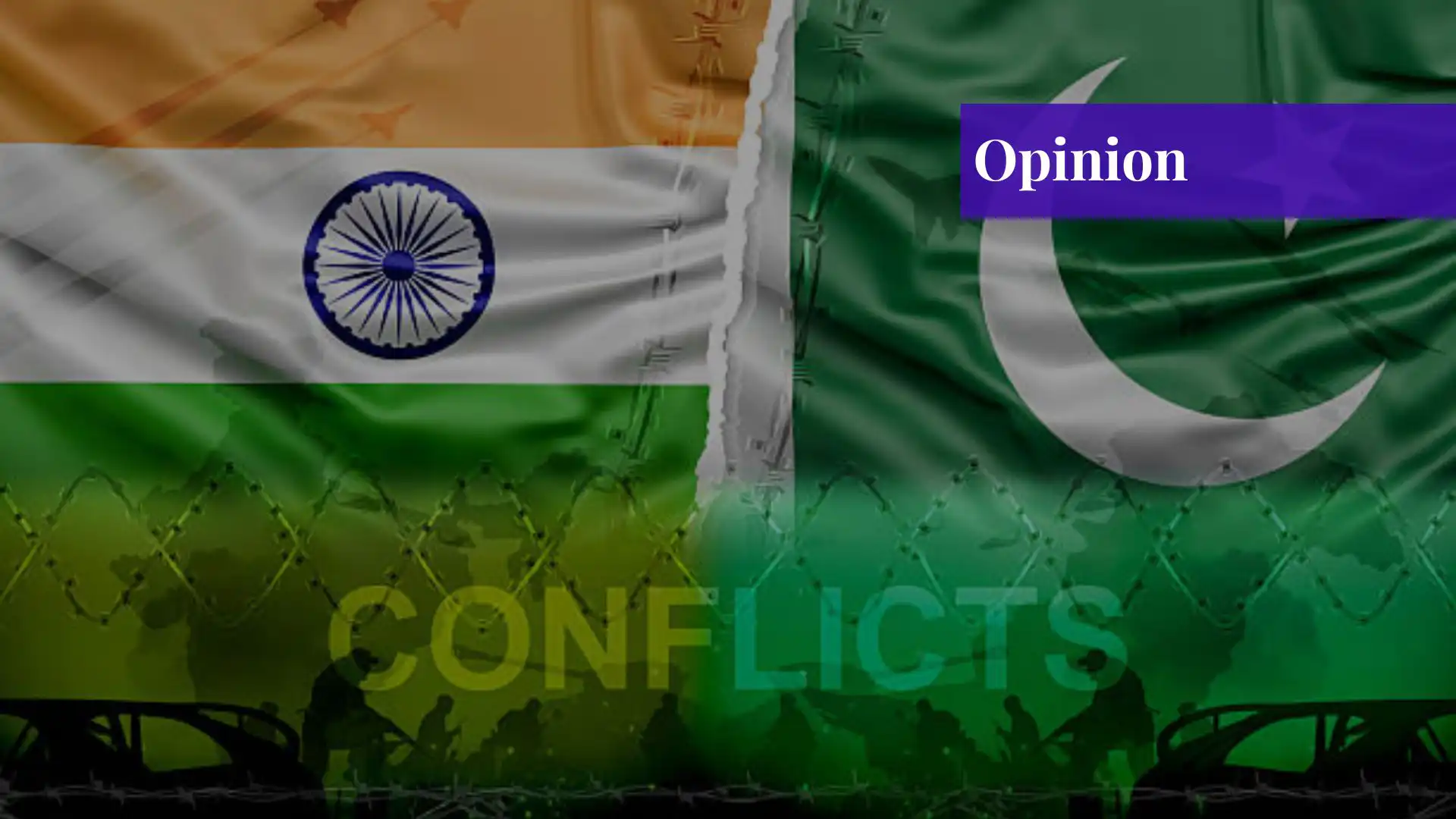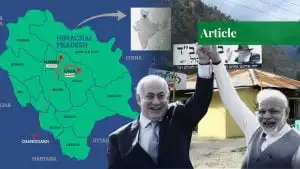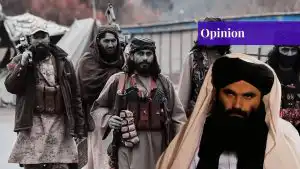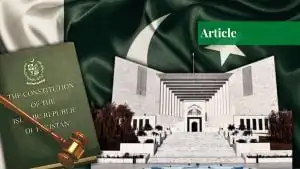Using Instagram, bitter netizens from India commented, “Tum sub atankwadi (terrorist) hoo.” Another commented, “Sub ko Patalouk (graveyard) pohucnha dou.” Another added under a reel, “Waqt ka Taqaza…. Pakistan ko bna dou Gaza.”
In an Instagram story, Bollywood star Siddharth Malhotra posted, “Operation Sindoor’s success reflects the commitment of our armed forces to protect the nation.”
The above-mentioned realities reflect Indian presumptions towards the people and the plight of Pakistan.
The bombs, the jets, and the sounds of sirens shook young Pakistanis in the recent Indo-Pak clash in the past week. However, what shook them the most was the laughter, not from the skies but from their screens, the tweets, reels, and hashtags flooded with the joy at the deaths of innocent Pakistanis. The most overwhelming feature of the Indo-Pak 2025 war was not the military clash or the Indian media’s sheer stupidity. It was the anti-Pakistan sentiment in India that reverberated on social media.
Where some Indians celebrated the attack as a mere attack on alleged terror sites, most of the netizens were seen enjoying and celebrating the death of innocent Pakistani civilians and children. Many applauded the war and urged the Indian state to wipe out the existence of Pakistan from the planet. Well, this might not have shocked the older generation of Pakistan, but Gen-Z and netizens were jolted by the hate they saw from across the border.
Bollywood celebrities and influencers, whom they thought were “just like them,” were celebrating their extinction and annihilation. This anti-Pakistan sentiment across India is embedded in the ideological tide, with its roots tracing back to the defiance of Pakistan’s establishment in 1947. This hostility has persisted since the inception of both nations, but the 2025 conflict marked its apex, turning long-standing animosity into a state policy.
The core of this sentiment lies in the inability of the Indian political leadership to acknowledge the legitimacy of Pakistan’s existence. Inspired by the Hindutva ideology, they see the existence of Pakistan as a territorial loss and a threat. This is exacerbated by the anti-Muslim sentiment that Pakistan is the only state in the world that came into being in the name of Islam, to provide a home and sanctuary to the Muslims of South Asia. It has symbolically challenged the Hindutva ideology of Akhand Bharat (the unified greater India of Hindus).
In 2023, the Indian Parliament redecorated and showcased the map of India, but to the great happiness of Hindutva, the map included the territory of Pakistan and sovereign lands of Bangladesh and Afghanistan—the rendition of Akhand Bharat.
But what does this hatred and animosity say about a nation when it cannot move on from a neighbor it claims to have outgrown, much like a bitter ex who refuses to move on?
The Myth Of Akhand Bharat
In the history of the territories of South Asia, the Subcontinent has been under the rule of various monarchs and kingdoms in different forms and at many times. Akhand Bharat embodies the vision of an undivided India, including the land of Pakistan, Bangladesh, Sri Lanka, Thailand, Afghanistan, and Myanmar. India, a state that has evolved through centuries of diverse ruling elites, invaders, and monarchies, was not a unified civilizational kingdom under one banner.
The Hindutva supporters usually seem to ignore the diverse and layered history of the Subcontinent by claiming it to be the land of Hindus only. In ancient times, the Subcontinent was ruled by kingdoms such as the Mauryas, Guptas, and Cholas, each ruling a different part of the Subcontinent with little centralization of power. The Akhand Bharat, reminiscent of the Maurya empire of Ashoka, couldn’t gain control of the mountains of the North, as they remained outside the central command. Medieval India saw the rise of the Delhi Sultanate, where various kingdoms ruled different parts of the territory one after another, and the boundaries remained non-stagnant. The favorites of Hindutva, the Mughal Empire, ruled most of India, yet the Deccan and Assam remained semi-autonomous. None of the Mughal rulers could rule the entire sub-continent, present-day India, Pakistan, and Bangladesh, or for that matter, Afghanistan. The British were the first to unify modern-day India, but it was administratively, as the princely states of modern-day Balochistan remained semi-autonomous.
Defiance Of Pakistan’s Existence
The Bhartiya Janta Party in 1965 passed a resolution that it was not against Islam as a religion, but reiterated that any separatist ideology wouldn’t be accepted in India. Pakistan did not separate from India, but it gained independence from British colonial rule just like its neighbor. Indian media and politics have always portrayed Pakistan as a hostile, separatist neighbor, which is artificial and unstable. This served two agendas of the Indian state; it delegitimized Pakistan’s claims on the Kashmir valley because, for them, the state of Pakistan is an illegal entity which must not exist, and justified aggressive military posture towards Pakistan in the pretext of preemptive security.
The saffronization in today’s India where Islam and Islamic rulers are deemed as invaders who destroyed the native Indian kingdoms has two layers too; first the anti-Islam and anti-Muslim rhetoric which underscores that Muslims are outsiders on the land and; last but not the least the Pakistan as an Islamic state an existential threat to India. War is never a trigger of border escalations that take place over some years; it is a result of rising religious polarization and hate mongering against those who think and act differently. In the case of India, it was rooted in the calculated belief that Pakistan is not only a state working on devil’s payroll because of its religion and their conceived notion that they breaded the ideology of separatism in India but also because they did not expect Pakistan to retaliate in way that would cause them much harm, considering their power.
The ultranationalist leadership of India, roused with hegemonic aspirations, saw this incident as an opportunity to punish Pakistan and change the power dynamics of the sub-continent. Emboldened with the aspirations to rewrite the ideological and geographical facts of the sub-continent to return to some mythical glory of the past, India’s irredentism and Hindutva ideology became clear. They want peace in the region by submission and not as a virtue. It signals that ignoring the reality of Islam is only the first step in this ideology of majoritarianism, as Sikhism, Christianity, and Buddhism will fall prey to this too. The call for the eradication of Pakistan or the treatment of Pakistan as any less sovereign state shows its imperialistic mindset towards its neighbors. The urge to create a unified, a-cultured, Hindu-led Sub-continent is neither rooted in the disputed border region, nor historical facts, but a fantasy to subdue others by the means of terror and weapons.
In pursuing imagined glory, India risks destabilizing the region and erasing the pluralism that once defined its strength. Is this the future India envisions for South Asia, or is it just a dangerous obsession with the past?
If you want to submit your articles and/or research papers, please visit the Submissions page.
To stay updated with the latest jobs, CSS news, internships, scholarships, and current affairs articles, join our Community Forum!
The views and opinions expressed in this article/paper are the author’s own and do not necessarily reflect the editorial position of Paradigm Shift.
She is doing her Bachelor in International Relations from Kinnaird College for Women's University, Lahore. She has done multiple internships with prestigious institutes and has a keen interest in foreign policy and diplomacy.






